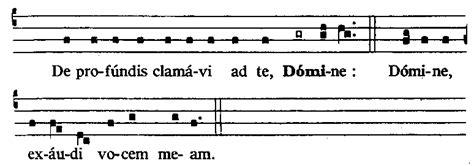
Today’s hymn from Sing Praise is Timothy Dudley-Smith’s “From the deep places, hear my cry”, a setting of Psalm 130. The full text is available online.
Lent seems to attract psalm settings, perhaps because it’s the part of the Bible where there is the largest amount of honesty with God about our fears and failings, which is where the Lent journey starts.
There are also, it seems, more ‘evening hymns’ here, again perhaps because evening worship tends to be more reflective, including looking back at the day and seeing what we could have done better (the fashionable word for this is ‘examen’). Psalm 130 is one of the Bible passages traditionally associated with the late evening service of Compline. In the more literal translation it begins “Out of the depths have I cried to you, Lord”, but TDS’s version is close to that. The second half of that first verse moves on logically to ask God not to keep account of our failings.
The second verse acknowledges God’s glory that we cannot behold without the grace that also comes from God himself. The third asks him to draw near to me in love, and the last one reminds us that God’s love acts like a night-watchman through the night to protect us from harm. As we have heard today that it will be at least another four months before Covid-19 restrictions on movement in England will be fully lifted, the importance of committing ourselves into God’s care is all the more important to our mental and spiritual health. This pattern of reflection, confession, absolution, receiving God’s love, and committing ourselves to his care through the night is matched by most forms of night prayer.
Musically, this is another ‘long metre’ hymn with several possible tunes to be found in any hymn book. The suggested one is ‘Breslau’, a 15th century German melody (the first line certainly has resonances of later Lutheran hymns). When John sang this at morning prayer, he sensibly changed the first line to “From deepest places…” to align the linguistic stress with the musical one.
